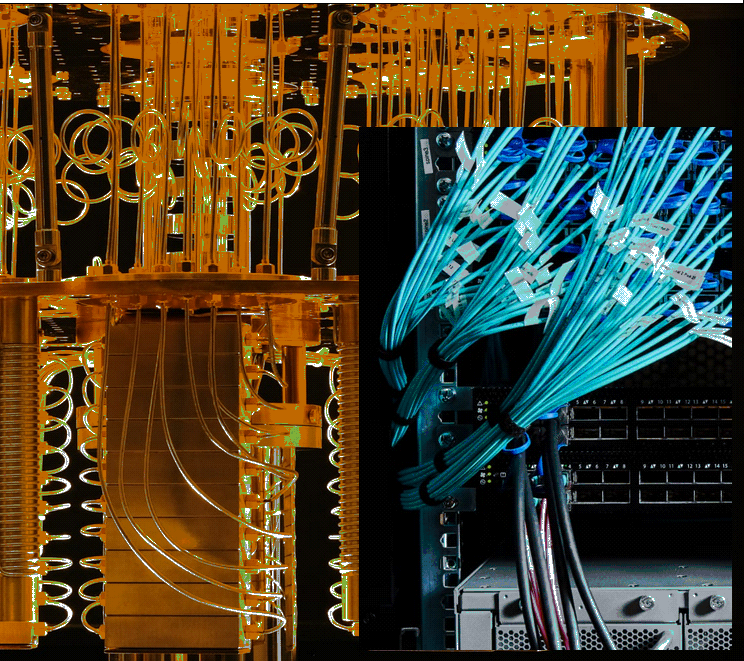The ABCs of emerging technologies 2020 and beyond
In the 109-year of history of IBM, innovation and change have been the mantra with which we have lived, and we have never been shy of taking risks. With the recent announcement made by our CEO, Arvind Krishna, separating our Managed Infrastructure Services unit of Global Technology Services from IBM to create a new public company by next year, IBM has again created a flutter in the industry with huge implications on where IBM is poised now and where we are going as a company into the new decade. This change will mean more innovation, more agility and a focus to drive growth by perceiving the reality of today and anticipating the needs of tomorrow, focusing on the ABCs of emerging technologies for IBM 2020 and beyond.
Today, Artificial Intelligence (AI), Blockchain (B) and Open Hybrid Cloud (C) are considered to be the ABCs of emerging technologies which are impacting the way we work and the future of conducting business. With the onset of COVID-19 earlier this year, these technologies have come into sharper focus as they enable governments and organizations across the globe to achieve some semblance of normalcy and attempt to resume day-to-day operations albeit on a smaller scale. The pandemic has presented a potential threat and an opportunity for technology providers and we must prepare ourselves and test our offerings to thrive in the new ways of working.
The current ABC landscape
The current COVID-19 pandemic and the measures implemented to counter its spread has disrupted just about everything that we previously considered to be the normal. The onset of the novel coronavirus forced many, individuals and organizations both, who were reluctant to embrace technology into internet-dependent remote work environments, virtual meetings and even to government websites in huge numbers.
Prior to the COVID-19 pandemic, IDC had forecast total artificial intelligence spending of USD 49.9 billion for 2020, a robust year-over-year growth rate of 30 percent. By far the benefits of AI in healthcare, education, telecommunications and even government are going to be amplified by the pandemic. Despite a slowdown during the pandemic, blockchain deployments saw a moderate acceleration in professional services, manufacturing, healthcare, retail, and other industries that require coordination across their value chain. Blockchain brings in the needed level of trust, can also leverage the AI capabilities to enhance DLT-based platforms by adding intelligence to them — in particular, enabling analytics and sophisticated decision-making from the data collected.
The impact of COVID-19 on cloud market is expected to grow globally from USD 233 billion in 2019 to USD 295 billion by 2021, at a compound annual growth rate of 12.5 percent during the forecast period. Major factors driving the growth of the market include enterprises’ need to support remote workforce to induce investment in IT infrastructure for hyperscalers, cloud service providers (CSPs), internet service providers (ISPs), rise in demand for cloud-based business continuity tools and services and suitability of public cloud environment best suited for the current unprecedented scenario.
As Arvind mentioned in his blog, hybrid cloud with its possible USD 1 trillion market opportunity and AI are swiftly becoming the locus of commerce, transactions, and over time, of computing itself. This technological shift is driven by the changing needs of our clients, who find that going with an open hybrid cloud platform strategy enables them to build and modernize applications that can run anywhere, an approach which is 2.5 times more valuable than relying on public cloud alone.
The growing impacts of ABC
Artificial Intelligence

The real-world applications of AI makes a crucial difference by improving performance and capabilities in various sectors. Autonomous driving in the auto industry, advanced chatbot/virtual assistant capabilities being used in several government agencies, student self-service portals through text-based chatbots and voice assistants, tools to support physician efficiency and reduce burden on clinicians, in healthcare and life sciences including intelligent scribes, documentation assistance and clinical decision support, are some of the relevant use cases from across sectors.
Implementation of technologies such as machine learning, neural network in smart vision system and computer vision-based solutions to automatically detect traffic signs and signals enhances road safety for pedestrians and drivers.
Blockchain
Businesses that are investing in blockchain initiatives are taking a more strategic, targeted approach and prefer having increased interoperability between their platforms. Across industries, manufacturing/supply chain management and financial services continue to be the most mature and prolific, and are moving past the proof of concept stages into solutions that actually create value. Interoperability is poised to take center stage in the blockchain conversations and decisions in 2020.
Cloud

Hybrid Cloud spending is accelerating at an all-time high, driven by migration of existing workloads, demand for data interoperability, digital transformation, and investments into new cloud-enabled technologies. Governments are embracing cloud environments but are encumbered by legacy systems and cannot migrate all their workloads. As businesses modernize, they are migrating to cloud through a mix of SaaS, IaaS, and PaaS with ad-hoc implementations. While most companies today focus on a hybrid IT strategy that includes a mix of internal traditional infrastructure with a single external cloud service, over time, multi-cloud and hybrid cloud will become more commonplace.
This trend will be driven by a growing familiarity among enterprises in using cloud-based services, as well as the availability of more robust cloud management tools designed to ease the deployment of complex environments. As companies move to cloud-based apps for customer engagement and asset management, the back-end data will need to be accessible in a multi, hybrid cloud environment. This will also be critical for businesses in order to take advantage of AI for personalization and operations or IoT for asset management, data needs to be cloud-based.
Innovation through global challenge
Major disruptions can cause fundamental shifts in social attitudes and beliefs, which pave the way for new ways of working, policies, and consumer needs and behaviors, some of which persist in the long run.
Data scientists are using deep learning models equipped with the RNA details of COVID-19 to predict which known compounds and antiviral drugs would be the most effective. The IBM Summit supercomputer analyzed thousands of compounds and has identified 77 promising compounds that can bind to the spike protein of COVID-19 and slow down the replication of the virus. Impressively, this was done in just two days, while it typically takes years to find the right solutions in such cases.
COVID-19 has everyone looking for answers, straining businesses, government agencies and healthcare organizations. To help address the current challenges, IBM is offering Watson Assistant at no charge for at least 90 days. It is trained to understand and respond to common COVID-19 questions directly leveraging U.S. CDC guidance and can be easily integrated into existing web or phone channels. Currently in use around the world, Watson Assistant can be tailored to any industry or use case and can be up and running in as little as 24 hours.
The role of IBM moving forward
There is a set of worldwide problems at once so daunting and yet so pressing that solutions simply can’t wait. We must accelerate the process of discovery to address this class of systemic challenges in such areas as policy, economic trends, societal decisions, and the natural sciences. Today, the convergence of the ABCs of emerging technologies is enabling us to consider a wider range of questions once thought out of reach.
Within the next five years, we expect to make significant progress towards this goal — positively impacting every sector of our society and economy. IBM has also developed AI-driven offerings that enable clients to balance remote and on-site working models as lockdowns are lifted across some countries, engaging with customers virtually, modernizing applications and migrating them to the cloud, and addressing clients’ cybersecurity and IT resiliency needs.
With Arvind Krishna leading IBM into the new decade, we as IBMers are at the forefront during these challenging times to collaborate with the governments and the businesses across industries to develop and bring ABC enabled solutions to help manage the unimagined challenges brought about by the pandemic and the future challenges to enable them for the new ways of working.



